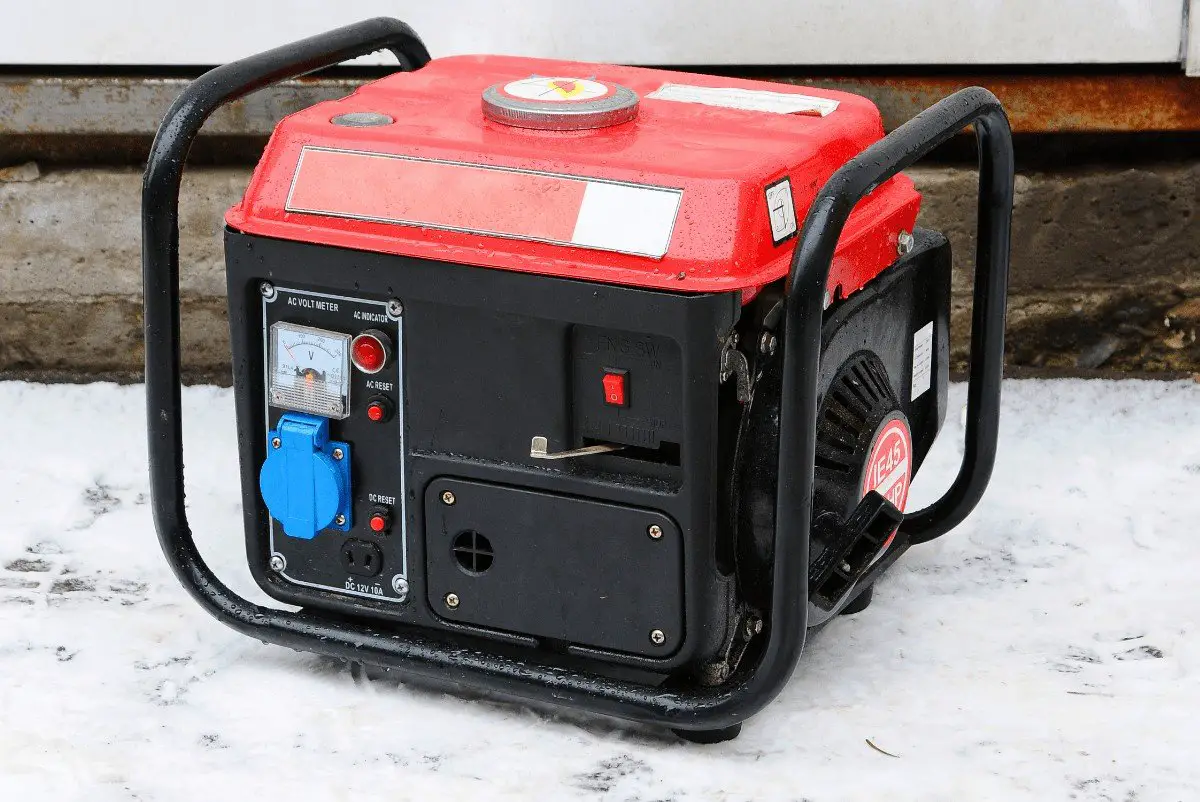Last Updated on June 21, 2022 by admin
Camping out can be a lot of fun, especially if you pack the right gears to make your trip worthwhile. While you will need to include in your backpack a sleeping bag and a tent, you also need a generator working on propane, natural gas, or gasoline.
It will be useful to provide you with the electricity you need when you are camping in the woods.
Before you go thinking about how you want to pack the gas generator, you also want to consider how much gas a generator uses per hour. This information will help you in deciding how much propane tank gas to take along with you.
Table of Contents
How Much Propane Does a Generator Use Per Hour?
Generators use different types of fuel. The fuel used can either be propane, diesel, natural gas, or gasoline. The amount of fuel consumption a generator will require for a one hour cycle depends on several factors.
The weather condition, size, brand, and full load on the generator all affect the amount of fuel consumption the generator uses.
Gasoline Generators
Gasoline generators working on propane and natural gas are designed to be portable. It is why it is the first choice when it comes to a suitable camping generator. However, there are many disadvantages to using a gasoline generator working on propane tank or natural gas.
First of all, gasoline is highly flammable, and is not advisable to store it in large quantities.
It is also expensive to buy a gallon of natural gas or gasoline. Camping outdoors for a long time will require more per gallon of gasoline. What this means is that you will have to spend more on electricity when camping with a gasoline generator.
The amount of gasoline a generator run depends on its size. A 5000-watt generator can use up to 20 gallons of gasoline for 24 hours.
Propane Generators
Propane powered generators are some of the eco-friendliest sources of electricity. It is a cleaner fuel option compared to gasoline or natural gas. Propane gas burns cleanly and is easy to compress into any size of the tank; Be it small or large.
You can also get a tank of propane gas delivered to your doorstep. Saving you the stress of having to go out to get some when you run out of gas.
compared to gasoline and natural gas, propane gas burns quickly. A 20-kilowatt generator will use up about three and a half gallons per hour propane. While a 35-kilowatt generator will need up to seven gallons of fuel consumption for an hour use.
The biggest problem with propane generators is the size of the tank.
You may use more than one standard size bottle in a day. Meaning that you will require more bottles to stay out for a few days.
Although the propane generator may burn more fuel than the gasoline generator run, its impact on the environmental safety is highly commendable. We recommend full load propane generators for outdoor camping as it helps to reduce your carbon footprint.
Diesel Generator
It is difficult to find a portable powered generator that runs on diesel. But should you find one, you will discover that it is a lot more efficient than gasoline generators.
It does not cost much to operate a diesel generator. It is also less flammable than any other fuel source.
You will spend less operating a diesel generator than on one that uses gasoline. A 20-watt unit will require less than 2 gallons of diesel to power it for a day.
Planning on Taking a Generator Outdoors?
When planning for a camping trip, you may find it difficult to decide which generator is best for you.
You will need to decide on which size you want to buy. You also need to consider your fuel consumption and options and how much maintenance it requires. Take into consideration that fuel consumption also varies based on the brand and power.
Deciding on which generator you need can be made possible by:
Calculating How Much Power You Need
When you are camping outdoors, you require less power consumption compared to when you are home. However, the amount of power and type of fuel consumption you will need depends on the equipment you will be taking along with you. If you will need to power just a few light bulbs, you can do with a small-sized generator and not much of a gallon tank. You also will not have to use much fuel per hour; since you will only be needing power at night when it gets dark.
Decide what equipment you will be taking
If you will be taking with you kitchen equipment such as coffee maker, toaster, and stove, you will use more power. Meaning that you will use more per gallon tank natural gas, propane, or any other type of fuel when camping.
Once you have taken into consideration how much power you will require, you can now decide on which size of the generator and how much fuel you need.
Storing Gasoline
If you will be taking with you a gas generator and will be spending a few days outdoors, you will need to pack extra gallon tank fuel kegs along with you.
Gasoline is highly flammable and as such should be stored properly. You should keep your kegs far away from the camping area. This is to avoid accidents from camping fires.
You can leave them out in the bushes or leave them in the trunk of your car or RV. You also want to avoid starting fires with gasoline. You should pack them only for use in the generator and nothing else.
Generator Sound
While natural gas generators are great when it comes to providing power without connecting to the grid, they tend to be very noisy.
It can be difficult to find sleep with the sound of the natural gas generator blaring outside your tent. While there is nothing you can do to prevent a generator from sounding when turned on, there is a lot you can do to reduce the noise. You can use a muzzler to reduce the noise; this is as easy as using a rubber piece at the bottom of the natural gas generator. Preventing it from vibrating thereby reducing the noise.
Conclusion
It will be impossible to do without a generator on a camping trip. You need one to heat your water, toast your bread, and make your cup of morning tea or coffee. Knowing how much gasoline a generator will use is important as it will decide on how much fuel you need to take along with you.




